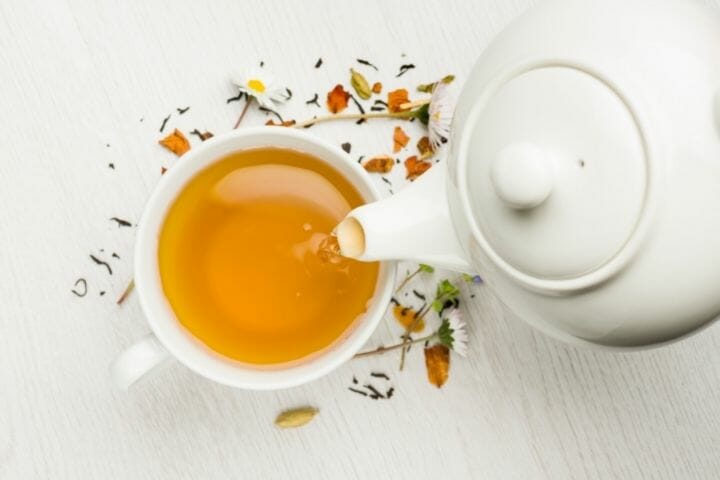We are what we eat (or drink!). How true is that adage? For example, do soda tea and coffee make teeth and bones brittle? Let’s find out the answer to this question in this detailed article
Contents
The foods and drinks you take may have a big influence on your health as soon as they reach your mouth. The most essential component in determining the impact on your teeth is the degree of acidity of your drink.
Your drink is termed acidic if the pH of a substance is 5.5 or below. Acidic foods and beverages weaken tooth enamel, making teeth more susceptible to decay and other dental problems. These drinks can be all the more harmful if they contain high acid and sugar levels.

How Soda Hurts Your Teeth
What did you drink today? Chances are good that it was soda for the vast majority of you! High-sugar soft drink use has been related to several health problems, including type 2 diabetes, obesity, and weight gain.
However, drinks can harm your teeth and gums as well, sometimes resulting in cavities or even noticeable deterioration.
More men than women are drinking Soda and sugary drinks, as per the Centers for Disease prevention & control. 273 calories a day are consumed by teenagers who drink the most. In their twenties and thirties, that number drops to 252 calories.
Your mouths are filled with microbes, and the sugars in a soda react with them to produce acid. This acid damages your teeth. Even sugar-free drinks include acids that destroy the teeth in the same way that conventional sodas do. You’re initiating a response that will persist for roughly 20 minutes with each cola drink. Your teeth are constantly being damaged if you drink all day.
The Two Main Effects of Soda on Your Teeth — Cavities and Erosion
Drinking soda may lead to both tooth erosion and tooth decay.
Erosion
Soft drinks’ acids attack the enamel of your tooth, which is your teeth’ outermost layer of barrier against erosive forces. They diminish the enamel’s hardness to a lesser degree.
Cavities
However, Soda can also harm the dentin and composite fillings on the following layer. Cavities can form if the enamel of your teeth is damaged in this way. People who drink soft drinks daily are more likely to acquire cavities, often known as caries. Bad oral hygiene on top of it may add a lot of damage to your teeth.

Soda and Osteoporosis: Is There a Connection?
No one knows why soda consumption is associated with an increased risk of osteoporosis. Soda may just take the place of better-for-you beverages in your diet. A glass of milk or fortified orange juice, as recommended by nutritionists, is probably not happening if you’re downing a Pepsi with supper (or breakfast!).
Drinking lots of soda is associated with an increased risk for bone fractures, according to nationally acknowledged osteoporosis specialist Dr. Robert Heaney of Creighton University Medical School in Omaha, Nebraska. However, he believes that this is probably because people who drink a lot of Soda also drink little milk and other nutritional beverages.
“There is no effect on calcium composition if you look at the Soda’s constituents when it is given to healthy people.”
Cola and other carbonated beverages were the subjects of a 2006 research that involved more than 2,500 persons. According to the research, other carbonated beverages did not have the same effect on women’s bone mineral density as cola drinks.
This is because cola drinks contain phosphorus, increasing the body’s calcium loss through the kidneys.
Is Tea Bad for Your Teeth?
Everyone enjoys a cup of tea. According to a recent study, tea is, in fact, the sixth most popular beverage in the United States. Only water and sodas are more popular than these. Should we worry about our teeth since we drink so much tea?
Some Ways in which tea affects your dental health-
Stains
Teeth can be discolored by tea. Teeth stained with yellow or brown hues are a telltale sign of someone who drinks a lot of tea.
Because tea includes tannins, it might discolor your teeth. The color of the tea is due to the presence of tannins, which are yellow or brown. Rinse your lips after drinking health-boosting teas, or even any tea to avoid tooth stains.
Cavities
It’s the components in tea that can create cavities, not the tea itself. Let’s say you’re a fan of sweets. Adding sugar to your tea might raise your risk of tooth decay.
Another example is honey, which is a sweetener. Some people like to add honey to their tea, but be aware that it contains a lot of sugar and may cause cavities in your teeth. This means that the best way to enjoy your tea is to exclude sugar and honey. However, if you want your tea sweet, you may use a sugar-free sweetener.
Lemon is another popular flavoring to include in tea. Lemon’s main drawback is its acidity, not its sweetness. Enamel might be eroded by acidity. As a result, if you must add lemon to your tea, do it lightly.

Tea and Bone Health
Moderate tea consumption (e.g., up to six cups of tea) has minimal effect on your bones if you get enough calcium and vitamin D in your diet, but it can elevate your blood pressure or speed up your heart rate which is not good for your overall health.
According to recent research, women who drink tea may be able to fend against osteoporosis. Adding milk to the tea enhances the health benefits even further.
Even though caffeine use has been linked to an increased risk of osteoporosis and hip fractures in women, at least two European studies have found that tea consumption reduces the risk of hip fractures.
According to primary author Verona M. Hegarty, Ph.D., a gerontology researcher at the University of Cambridge School of Medicine in England, “the magnitude of the effects of drinking tea was striking.” Bone mineral density measures in older women were greater in those who drank tea than those who didn’t. According to a new study, tea’s antioxidants may help protect older women from osteoporosis.
You might like to read: 9 Health Boosting Teas for Seniors
Dental Debate: Is Coffee Bad for Your Teeth?
The ancient adage that coffee is terrible for your teeth may ring true if you’re a coffee user or have been following health-related headlines recently.
It does create stains, but it’s just an aesthetic issue and won’t affect you in any way. However, can drinking coffee cause tooth decay? Coffee consumption may be an issue for you. Research shows this to be true.
Enamel Erosion: How the Acid in Coffee Breaks Down Your Teeth
The outer covering of your teeth, known as enamel, protects and preserves your teeth from the outside environment. Teeth that have lost their protective enamel are more vulnerable to decay and other diseases and damage.
The enamel of your teeth might be damaged if you drink a lot of coffee daily. Because of this, most dentists advise coffee drinkers to use an enamel-strengthening toothpaste to increase their enamel’s resistance to erosion and prevent or stop enamel loss.
According to the study, adding cream, sugar, or artificial sweetener to the coffee extract weakened its beneficial effects. That’s why dentists recommend drinking black coffee if you must. So go ahead and enjoy your coffee, but don’t add any sweetness.
Coffee and Bone Health
According to some research, caffeine may increase calcium excretion in the urine while limiting calcium absorption in the body. Bone loss may occur due to a lack of calcium in the diet.
However, caffeine’s impact is lessened in those who get adequate calcium in their diet (e.g., 1,000 to 1,200 mg from the total of food and supplements). Adding 1–2 tablespoons of milk to your coffee will counterbalance the little reduction in calcium absorption that caffeine may cause (by roughly 4 mg of calcium per cup).

Wrap Up
The health of your teeth may be greatly affected by what you eat and drink. However, there are techniques to minimize the harm. Many of us have a poor habit of drinking sodas and other sugary beverages.
Still, there are some things you can do to reduce the risk of damaging your teeth, such as rinsing your mouth after, avoiding these beverages before bedtime, waiting 20-40 minutes before going for a brush as friction against teeth that are recently acid attacked can do more harm, using a straw for drinks that are particularly acidic, and getting regular dental cleanings, etc.
Please let us know if there’s anything you think we’ve missed or if you have any suggestions for how we can improve this guide. If you have your own versions of drinks and beverages that are healthy for the bones, please share the recipes with us in the comments section below.
As always, if you like the content, please share it with others and mention us on your social networking sites if you appreciate the information.
